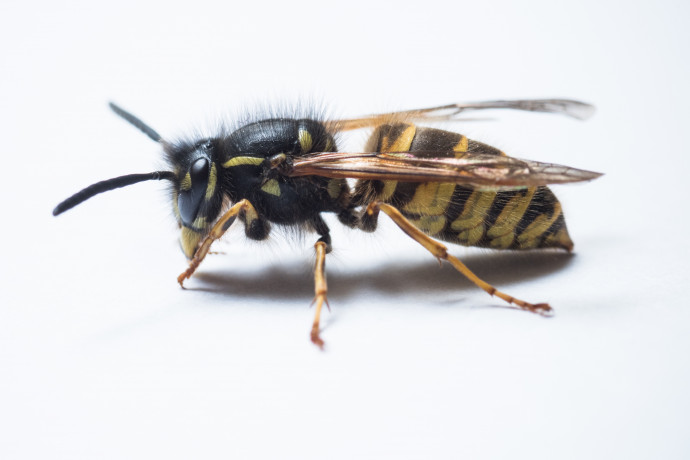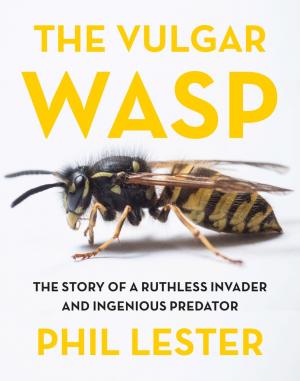The Vulgar Wasp: The Story of a Ruthless Invader and Ingenious Predator

Posted: 20 November 2018
Book by Phil Lester
Published by Victoria University Press 2018
Marsden Fund VUW1302 'Using interaction networks to explain invasion success and community dominance: wasps in an old and new world'

They’re ranked one of the world’s worst invasive species. They’re often described as pure evil. People use petrol bombs, flamethrowers and shotguns on them in acts of vengeance.
Wasps are feared and hated by many of us, with good reason – they sting. For anyone who is allergic to their venom, a sting can mean a trip to hospital; for a very unlucky few, it can mean death. Wasps also place massive pressure on New Zealand’s biodiversity, especially on native birds, plants and insects, including our much-loved honey bees. They cause huge economic losses, estimated at more than $100 million each year.
Native to Europe, Vespula vulgaris, the common wasp, has been inadvertently transported around the globe – usually travelling quietly, unseen, sleeping in people’s cargo. Today in New Zealand, the highest known wasp densities have up to 40 nests per hectare.
Though we know them as pests, wasps are amazingly efficient predators with some exceptionally smart behaviours. Vespula vulgaris excels as both a hunter and an invader. Some people find them pretty tasty too.
In this book, entomologist Phil Lester describes the many fascinating and lesser-known sides of the common wasp. He asks: how can we manage wasps? Can we ever learn to live with them? What can they teach us about the challenges we face for pest control? With warmth, wit and intelligence, The Vulgar Wasp tells the story of the common wasp and its impact on us and our biodiversity.
The Vulgar Wasp was longlisted for the Ockham New Zealand Book Awards 2019 in the Royal Society Te Apārangi Award for General Non-Fiction category
Link to the publisher's website
